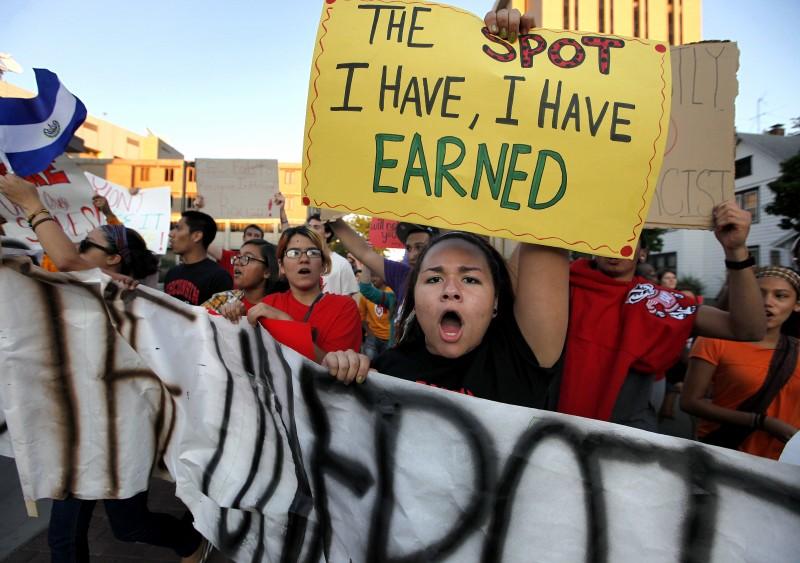America has never been a nation of equal opportunity. This becomes especially apparent when considering how biased the college admission is given that the process unfairly favors students who come from wealthier backgrounds.
It has been proven by studies, such as one done by the National Center for Fair and Open Testing, that students coming from wealthier backgrounds perform better on standard college entrance examinations such as the SAT. In fact, the study proved that the most accurate indication of how a student will perform on the SAT is their family’s income level.
Some people would suggest that the reason for this gap is that wealthier students have access to test prep classes and private tutoring sessions that their low-income counterparts do not have. However, this reasoning does not fully account for the performance gap.
In response to the latter argument, many would contend that there are plenty of ways to overcome the lack of prep course. For instance, free online resources and study booklets have recently been made available across the college prep world. Yet while these test prep courses offer an advantage by helping students overcome nervousness and even teaching them how to take the test, these measures of preparation do not do enough to help students. This is because the SAT draws upon a standard of education to which many less wealthy students have not been exposed.
The Wall Street Journal poses the example of the SAT vocabulary word “regatta.” While many students living in middle and upper income families in the Northeast will understand the word, poorer families from areas such as the southwestern part of the United States and even international backgrounds will be less likely to know the meaning of the word.
A few colleges and universities have acknowledged the flaws in the SAT and have responded by making standardized tests optional in their admissions processes. Yet the SAT is only one among many flawed institutional practices.
For example, students from wealthier backgrounds have a higher likelihood of attending prestigious public or private high schools and college preparatory schools than their lower income counterparts.
Many students who attend wealthier schools are more easily able to find the resources that aid them in creating their college applications, be it writing college essays or deciding which extracurricular activities to include. Students from wealthier backgrounds also have the resources to hire essay coaches to read their application essays.
Many schools serving lower income areas do not have significant funds to dedicate to the college admissions process. In addition, wealthier students are more likely to have families who have attended similar institutions and are aware of the process, while many lower income students have families who have never attended college. As a result, there is no one to provide them with guidance during the selection process. Wealthier students have an advantage in being admitted to prestigious institutions because they are also more likely to have institutional legacy. Studies have shown that legacy students have a shockingly high advantage over their non-legacy counterparts in being offered admission into elite universities.
Furthermore, students who attend poorer schools do not have as wide of a selection of Advanced Placement and International Baccalaureate classes as their peers from at wealthier institutions. This therefore places them at a disadvantage in the admissions office when directly compared to their wealthier counterparts who did have access to such classes. Low-income applicants are less able to take part in more prestigious extracurricular activities such as sports and unpaid internships because they simply cannot afford the cost. In addition, they may need the time to get a job in order to draw a salary to support themselves or their family.
Applicants are further hindered by the lack of diversity in the admissions office itself. Students from various economic and ethnic backgrounds include information from their unique perspectives on college application essays, and for these applications to be judged in a fair light, they need people who are from similar backgrounds to their own who can relate to these experiences. Therefore, if an admissions office does not have a diverse staff, that office may tend to admit students from backgrounds similar to their own.
Of course, there are always outliers. There are college applicants from low income backgrounds who are brilliant and hardworking enough to defy the odds and be offered admission to one or more elite universities. Yet these applicants are the exception, not the rule, and they undoubtedly had to overcome greater odds than their wealthier, more privileged counterparts.




